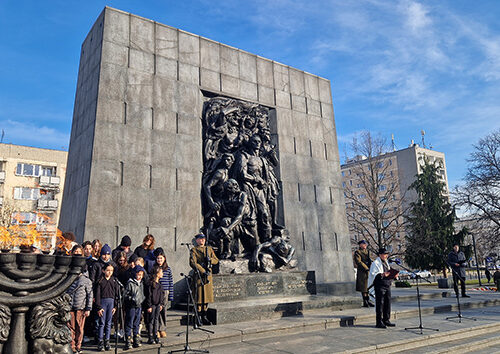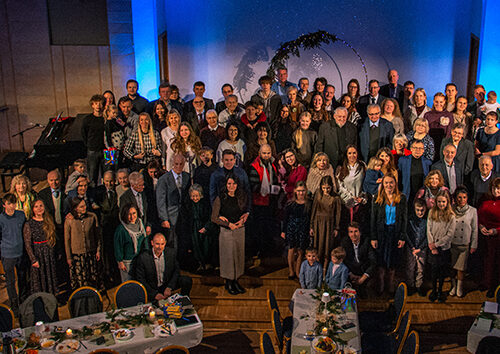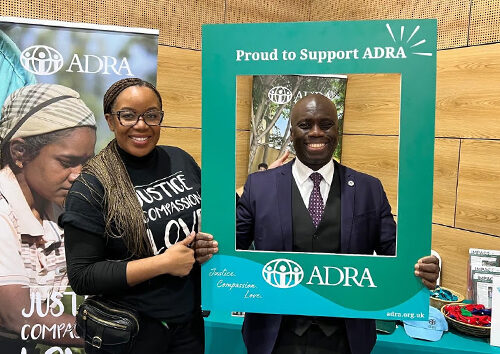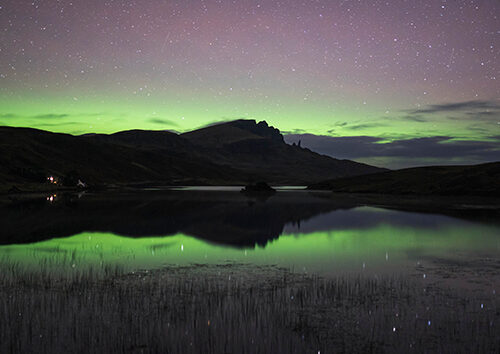4 February 2025| Warsaw, Poland [Daniel Kluska]
“Before our eyes, history seems to be repeating itself, though not yet at its most tragic.
Therefore, we ask You, God,
to give us the courage to say NO when we are urged to treat others as inferior,
to say NO when we are told that violence is a necessity”¹
Every year on 27 January, the anniversary of the liberation of Auschwitz-Birkenau, the German Nazi concentration and extermination camp (1940–1945), commemorations for International Holocaust Remembrance Day take place in Warsaw at the Monument to the Heroes of the Warsaw Ghetto.
For this year’s commemoration, leaders of the Polish Union Conference, Jarosław Dzięgielewski (president) and Andrzej Siciński (director of Public Affairs and Religious Liberty), once again took part in the ceremony.
The event featured an artistic segment followed by commemorative speeches and prayers led by clergy from various faith communities, including the Jewish Community, the Roman Catholic Church, the Evangelical Community, the Polish Autocephalous Orthodox Church, and the Seventh-day Adventist Church.
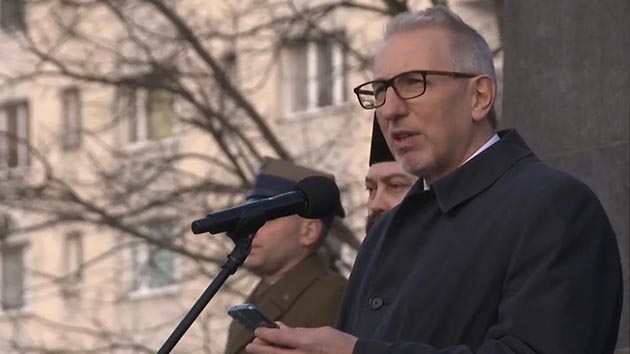
Pastor Siciński offered the following prayer:
“Lord God,
Your simple command, ‘Thou shalt not kill,’ was violated over a million times at Auschwitz-Birkenau. Before our eyes, history seems to be repeating itself, though not yet at its most tragic. Therefore, we ask You, God, to give us the courage to say NO when we are urged to treat others as inferior, to say NO when we are told that violence is a necessity. God, we are sorry for our passivity when we should have acted. We repent for our indifference to these terrible events—for allowing ourselves to become complacent and undisturbed by the comforts of a new world, often prioritising peace over truth.
Thank You, God, for being with us and, despite our weaknesses, never abandoning us. Without You and Your revelation in Your Word, we would likely have already drowned in hatred—one against another, nation against nation. But You are love and mercy. You are our peace and the hope for peace in the world. That is why we thank You, God, for the peace that has just been established in Israel after months of conflict.
And so, God, we also ask You to bring an end to other bloody conflicts as soon as possible. Inspire the hearts of world leaders towards peace. We believe in Your omnipotence. We ask You to hold close to Your heart all those affected by these conflicts—all those who have lost loved ones. Our thoughts are especially with the descendants of those who perished in the Holocaust, a wound that remains unhealed.
And for those, Lord, who were deprived of life simply because they were seen as different—as inferior and unworthy in the eyes of others—restore eternal justice at Your Last Judgement. Their shed blood cries out to You today, O God, from this earth for a just reckoning.
Hear our prayer. Amen.”
After the prayers, representatives from various offices, institutions, and organisations laid wreaths at the monument.
Reflecting on the commemoration, Siciński remarked, “How terrible that, on the eve of the 80th anniversary of the liberation of the Auschwitz-Birkenau camp, one hears calls to stop apologising for the crimes of previous generations.” He continued, “And this, at a time when the world is once again embracing the idea that, in order to become great, all one has to do is take something away from someone else. And in order to take away, one must first convince the public to regard others as second-class citizens. That is why we must remember these terrible events and affirm that every human being, regardless of race, colour, or origin, is worthy of respect as a child of God.”
According to Siciński, the best way to honour the memory of the Holocaust victims is to courageously oppose any ideology that justifies violence as a means to achieve its goals. When humanity forgets this lesson, terrible tragedies unfold.
[Photos:Andrzej Sicinski and Shalom Foundation].
The original version of this story was published on the Polish Union Conference website.
¹Excerpt of prayer by Adventist pastor Andrzej Siciński offered during the commemoration of International Holocaust Remembrance Day.
